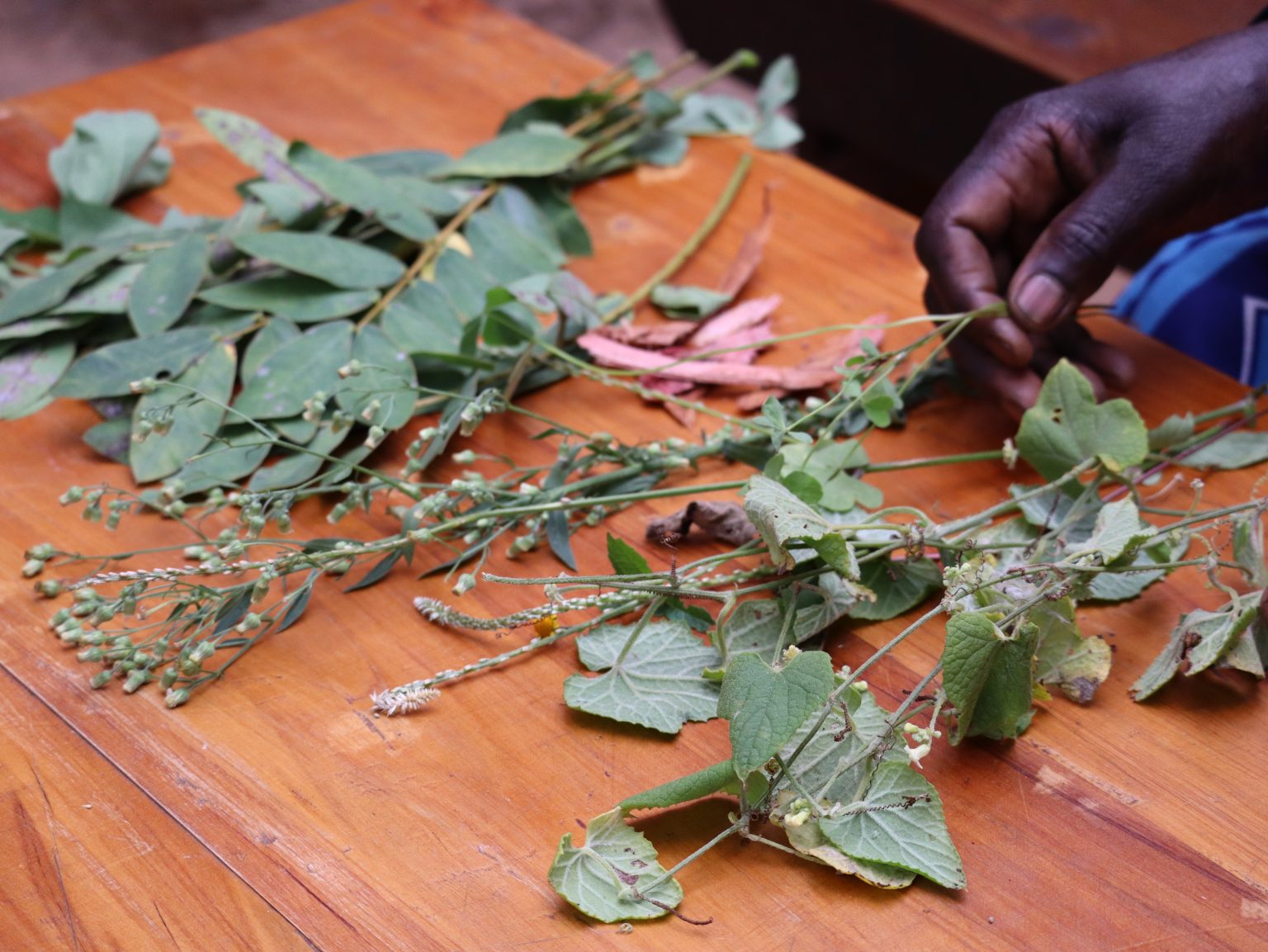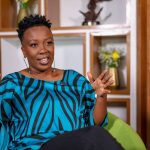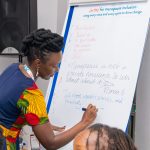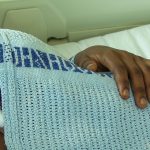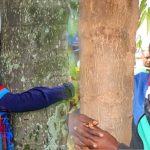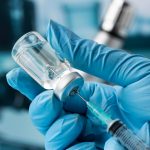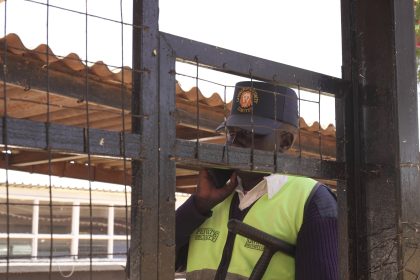Selina Chepkurui, a herbalist, gave Kibe a herbal bath, tied the pre-cancerous wound in crushed, fresh green leaves and a bitter concoction to drink thrice daily.
Arthur Wanyoike and his wife, Caroline, never thought they would seek out a traditional herbalist. Born and raised in Nairobi, they had access to modern hospitals and conventional treatment. But 2022 changed their views on herbalists and traditional medicine, forever.
The couple was expecting Jasmine, their first baby, after a smooth pregnancy until 40 weeks, when her due date approached.
Unfortunately, during an ultrasound before delivery, the doctor made a shocking discovery: the baby had no heartbeat. Jasmine had died about three days earlier. Caroline delivered a stillborn, and “It was a very, very heavy burden for us to bear,” recalls Wanyoike.
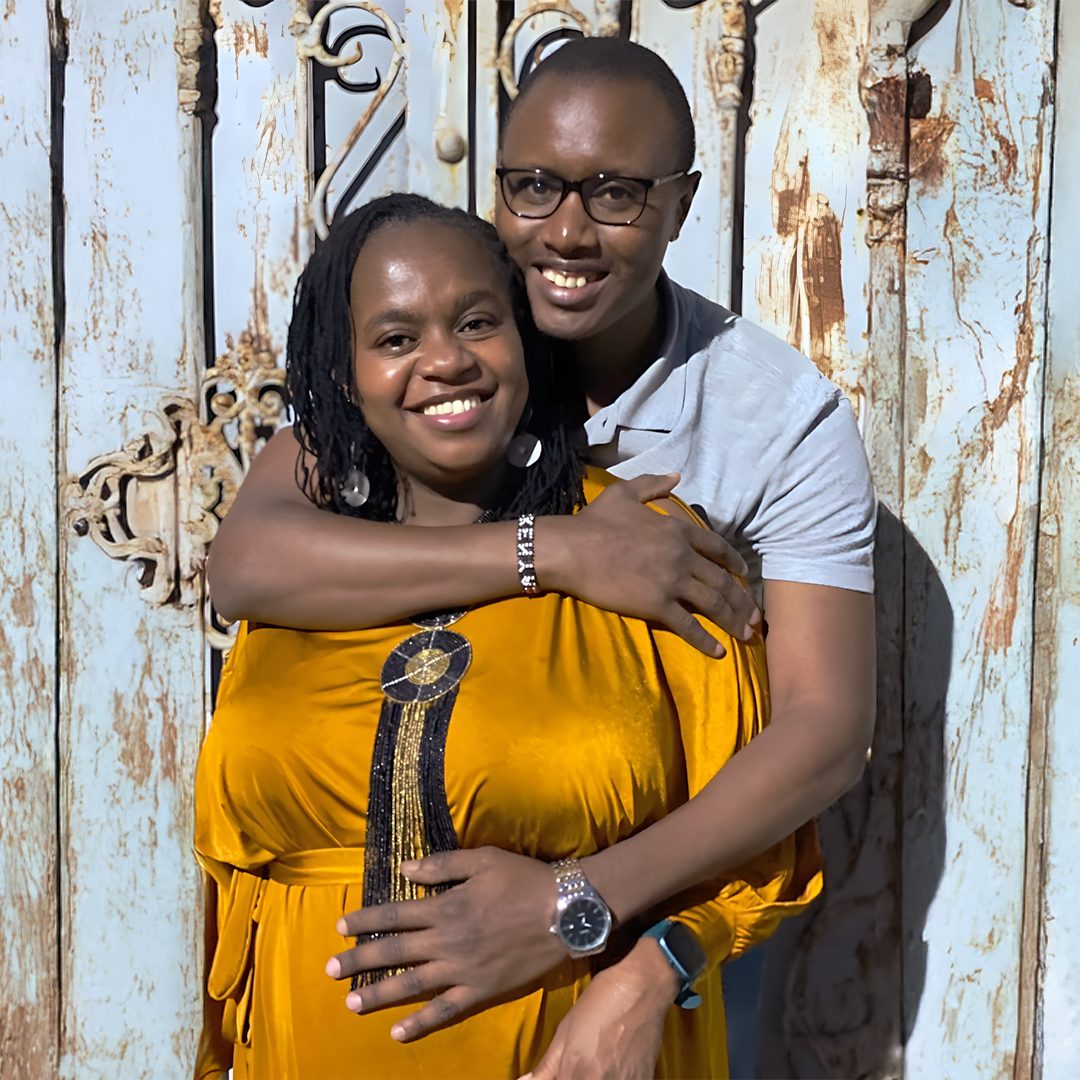
Despite the loss, the couple tried again. First, Caroline had her fallopian tubes tested and “we found that I had bilateral blockage on both my fallopian tubes. Doctors told me the only way I would carry a child is through IVF.”
IVF, on the cheaper side, costs Ksh500,000 per try with no pregnancy promise. The couple was stuck and opted for healthy living: balanced meals, gym workouts, and living stress-free. But still couldn’t conceive. “After Caroline healed, we tried for so long; we tried all means, went to the hospital for check-ups and sought several opinions, but it was just not happening,” says Wanyoike.
Caroline’s sister mentioned a friend who battled infertility, and swore by herbs from a healer in Elgeyo Marakwet called Mama Chiri, known for helping women conceive. Desperate, they called her. “First, I must touch your belly,” Mama Chiri said. With no other options, they embarked on an eight-hour journey to meet her.
Caroline faithfully drank the bitter, dark-red brew twice daily and conceived in two months
The journey drained Wanyoike and Caroline- physically, mentally, even spiritually. As devout Christians, they hid the truth from family, claiming they were attending an out-of-town event. Mama Chiri greeted them with cups of mursik, the traditional fermented milk. After having Caroline lie down, the healer gently pressed her belly at different points. Within minutes, she identified the issue as a “small problem,” preparing herbs for daily use.
Back home, Caroline faithfully drank the bitter, dark-red brew twice daily- Wanyoike encouraging her through each grimacing sip. And as if by a miracle, Caroline conceived in two months, and 35 weeks later, welcomed their second baby, Kia- a beautiful, light-skinned, bubbly bundle of joy- Wanyoike and Caroline’s proof that miti shamba, healthy living and faith in God can work magic.
When asked if herbal medicine is legitimate, Wanyoike says, “We just give glory to God because what can we say? The evidence is in the pudding … Kia is here, and we thank God for that.”
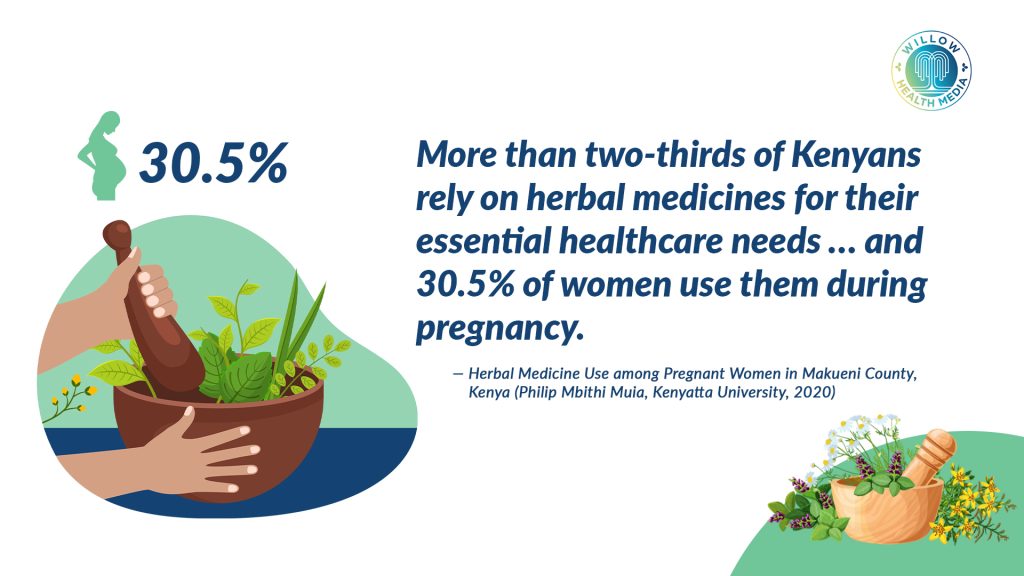
Willow Health travelled over 390 kilometres North-West of Nairobi to meet Mama Chiri in hilly Trans Nzoia County, where villagers acknowledged she had healed a child with fever, a bedridden brother, and a dying mother, even as we asked for directions.
“Yeye ni kama mungu (she is like a god),” said our guide, pointing to a winding dirt road leading to Mama Chiri’s homestead on a slope surrounded by trees and lush, green grass. Soft-spoken and careful with her words, Mama Chiri welcomed us with a prayer and a cup of tea.
Born Selina Chepkemoi Chepkurui in Kasibuko village, Elgeyo Marakwet County, Selina (Mama Chiri) grew up under her paternal grandmother, Khukhu, who was also a famous medicine woman. Selina says her grandmother often went to the forest with her to collect traditional medicine, and Selina would help carry the load back home.
It seemed like a crime against God to watch people suffering, yet I had knowledge to treat them
When Khukhu grew too frail to gather herbs, she gave Selina her first solo mission, but changed the location. Armed with a hoe, machete, bag, and provisions, Selina foraged all day in the forest. At dawn, Khukhu laid out the harvest, examining each root and leaf. Her verdict: “Every single one is medicine… no poison!”
Armed with a hoe, machete, bag, and provisions, Selina foraged all day in the forest. At dawn, Khukhu laid out the harvest, examining each root and leaf. Her verdict: “Every single one is medicine—no poison.”
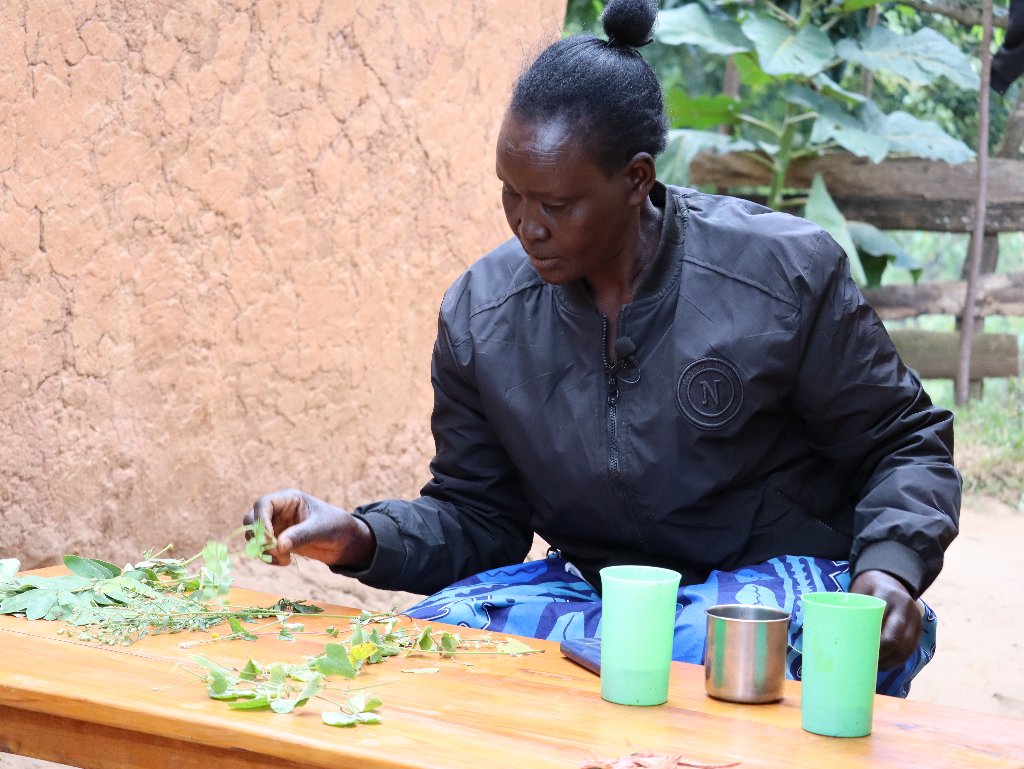
“Khukhu then blessed and handed over her legacy to me,” says the Class 8 dropout, who didn’t start practising until after she was married. “It seemed like a crime against God to sit and watch people suffering with illness, yet I had knowledge of how to treat them, so I had to do it,” adds Mama Chiri.
Around her home, nearly every plant serves a purpose- most are medicinal, the rest bear fruit. Patients find her through word-of-mouth referrals, often after modern medicine fails them. Some come to her; for others, she makes house calls, delivering remedies and tracking progress.
Those burned by expensive treatments arrive desperate. But locals who know her reputation? They visit before hospitals, not after.
She treated Charles Kibe Masobo, a boda rider and farmer in Suwerwa, Trans Nzoia. Kibe, a father of four, says his leg was almost amputated as “The doctor said my wound had all the symptoms of precancer,” he says.
If any doctor performed surgery with metal tools, the herbalist wouldn’t touch the patient
What started as terrible pain seven years ago quickly became three deep wounds oozing fluid and pus, “It was like acid eating into metal,” says Kibe.
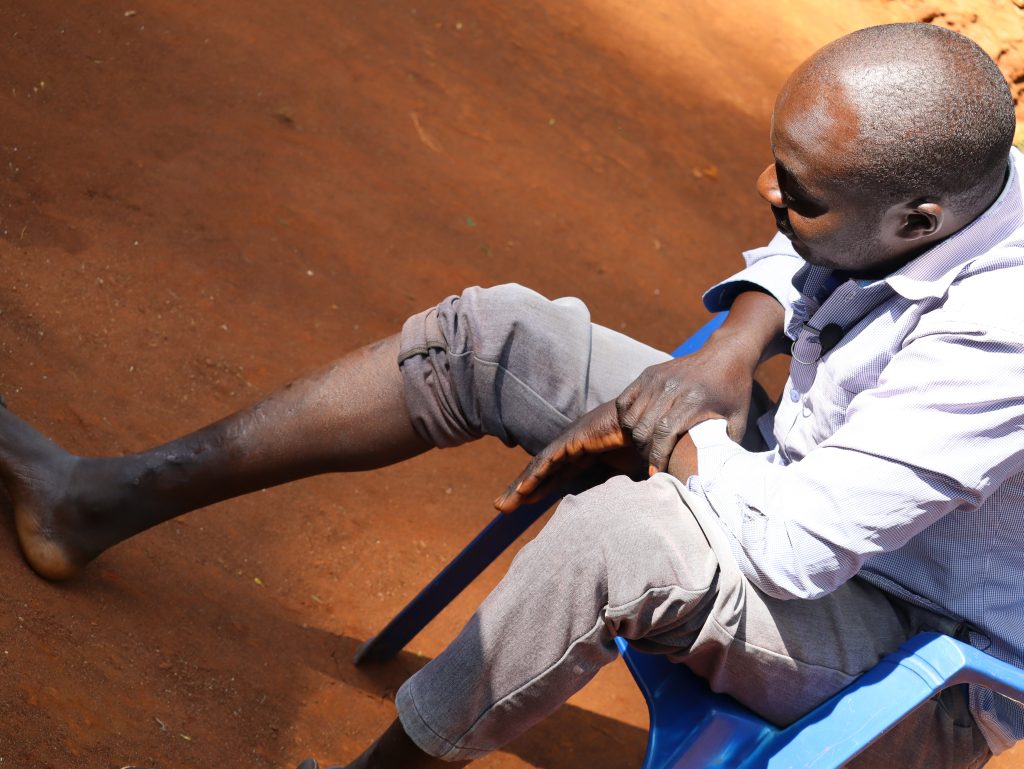
Without any improvements at Kitale District Hospital (now Kitale County Referral Hospital), doctors “insisting on a cancer biopsy, referred us to the Moi Teaching and Referral Hospital in Eldoret.”
Desperate to save her son from dying before seeing a specialist, Colta Ajeno contacted Selina. The healer had one rule: If any doctor had performed any surgery or touched the wound with metal tools, she wouldn’t touch him.
When the family said no, Selina took Kibe in. Her treatment plan was intense: a herbal bath to wash his entire body, a bitter-tasting drink three times a day, finely ground powders to sprinkle on the wound, and fresh green leaves crushed and tied to the wound.
“Then one day, while observing the wound, we noticed a small patch of pink flesh. Immediately, Mama Chiri leapt in joy and announced, ‘My son, you are healed!'” In just one month, pink new flesh replaced the rot that had devoured Kibe’s leg, healing enough for him to return home.
Bandit-prone Elgeyo Marakwet has bandits seeking herbal treatment for gunshot wounds
Besides Caroline and Kibe, Selina’s ageing hands have treated hundreds of patients for skin infections, malaria, infertility, fractures, abscesses, and even Coronavirus didn’t escape her healing touch, she says.
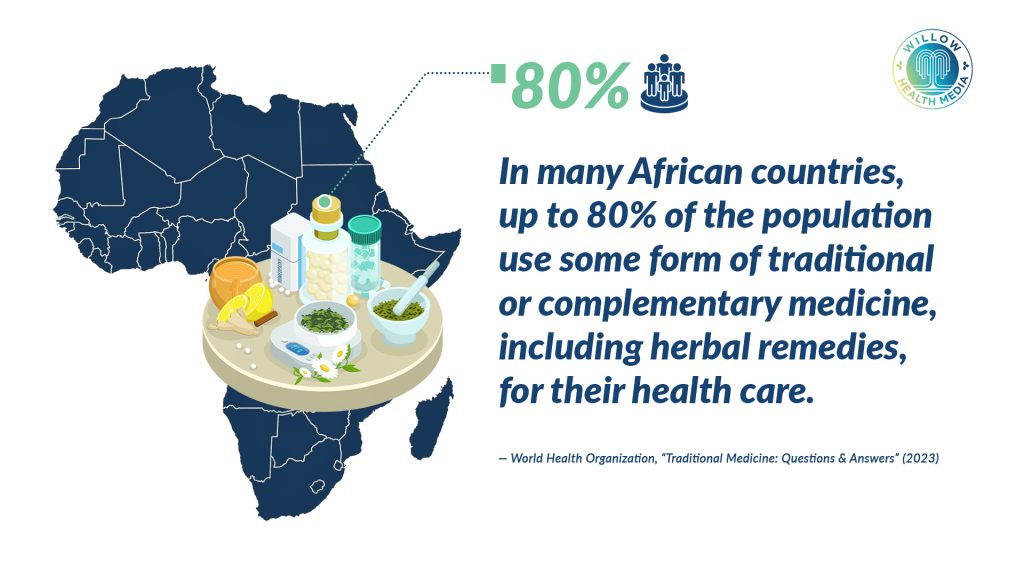
Selina harvests most herbs in her home compound, but for four stubborn conditions like diabetes, cancer, fibroids, and hypertension, she journeys into the arid, bandit-prone Elgeyo Marakwet, where bandits also seek treatment for gunshot wounds.
The devout Seventh Day Adventist believes most diseases can be treated via lifestyle changes, which is why she avoids sugar, processed foods and eating from coloured plastic dishes.
“Mimi sio mchawi (I’m not a witch doctor),” she says, explaining that while witchdoctors use divination and evil powers, she uses natural products and prayers for divine healing.
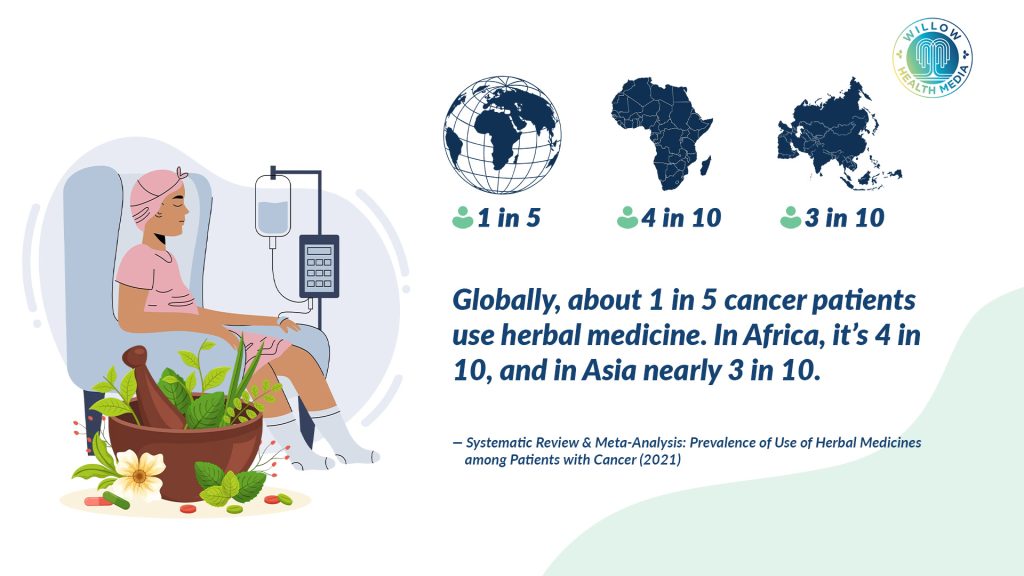
Traditional healers are widely relied upon, especially in rural areas where modern healthcare is less accessible. A 2020 study titled Traditional medicine in Kenya: Past and current status, challenges, and the way forward showed that around 70 per cent of Kenyans rely on traditional medicine as their primary source of healthcare.
But despite their growing presence, deep knowledge and successful track records, the Kenyan government has failed to recognise traditional healers and herbalists. They exist as a dark shadow, sometimes even being attacked and branded as witchdoctors.



